Community Engagement and Accountability
COVID-19 Resources

Community Engagement and Accountability
COVID-19 has been declared a global health emergency and communities require trustful information. Clear and effective communication and engagement approaches are critical to ensure that fear, panic, and rumors do not undermine response efforts and lead to COVID-19 to spread even more quickly. The Community Engagement Hub provides tools and resources to guide National Societies on how to incorporate community engagement and accountability into your operations.
Language guide: EN (English), FR (French), AR (Arabic), SP (Spanish), PT (Portuguese), RU (Russian), JA (Japanese), ID (Indonesian), SW (Swahili), KO (Korean), VI (Vietnamese), TH (Thai), HI (Hindi), BN (Bengali), TL (Filipino), MY(Myanmar Burmese), ZH (Chinese Simplified or Traditional).
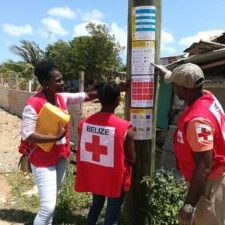
Community Engagement Hub
All material is on the Community Engagement Hub. The Hub will be re-designed soon. For ease of reference, we have compiled all resources below, which are regularly updated with new languages, content, and links, including from partners.
Guide to Community Engagement and Accountability
The Red Cross Red Crescent Guide to Community Engagement and Accountability has been updated for work in 2021. This guide shows how the Red Cross movement puts communities at the heart of what we do by improving communication, engagement and accountability across our work. You can use this guide to develop your own strategies and plans, alongside the resources below specific to COVID-19. Read More: EN
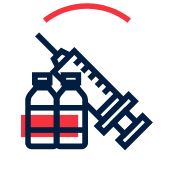 COVID-19 Vaccines
COVID-19 Vaccines
Pocket guide for community engagement and accountability practitioners
This pocket guide brings together some essential tools and resources to build trust using community engagement and accountability (CEA) approaches to support the rollout of COVID-19 vaccines. Read More: EN
Frequently Asked Questions (FAQs)
A compilation of Frequently Asked Questions (FAQs) about COVID-19 Vaccines, including questions around safety and access and distribution. To see the printable version click here. To see the live version of this document, go to the Health Help Desk
Vaccine Misinformation Management Field Guide
This guide aims to help countries develop strategic and well-coordinated national action plans to rapidly counter vaccine misinformation that are informed by active social listening. The guide covers topics on vaccine hesitancy, why people are susceptible to misinformation and a strategic approach to misinformation management. Read More: EN
Risk Communication and Community Engagement Guide on COVID-19 Vaccines for Marginalized Populations
An inter-agency guidance document is designed to promote COVID-19 vaccines with key consideration for humanitarian contexts and marginalized populations with specific access and communication needs. Read More: EN
 COVID-19 Global Community Engagement Guidance
COVID-19 Global Community Engagement Guidance
COVID-19 Global Risk Communication and Community Engagement Strategy – interim guidance
The COVID-19 Global Risk Communication and Community Engagement Strategy, December 2020 - May 2021 provides an important update for member states and supporting partners. The updated strategy is underpinned by a socio-behavioural trends analysis and builds on the learnings from the response to-date. The shift presented in the document is towards the community engagement and participatory approaches that have been proven to help control and eliminate outbreaks in the past. Read More: EN
 RCCE strategy and planning guidance
RCCE strategy and planning guidance
UPDATED: COVID-19 RCCE Strategy Africa
This strategy reflects lessons learned since the start of the Covid-19 pandemic and focuses on what we are aiming to achieve over the coming year, including on building and maintaining trust in the vaccine. Read more: EN
Practical guidance for risk communication and community engagement (RCCE)
Practical guidance for Refugees, Internally Displaced Persons (IDPs), Migrants, and Host Communities Particularly Vulnerable to COVID-19 Pandemic. Read more: EN
Planning Guide for Adapting Risk Communication and Community Engagement as Public Health and Social Measures Shift
This operational tool will help organizations plan safe in-person community meetings, with RCCE considerations to ensure prevention measures are maintained as public health and social measures shift. Read more: EN
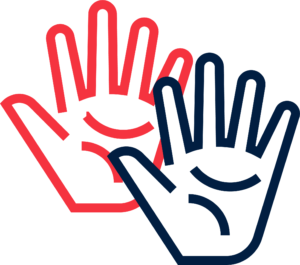 Stigma prevention
Stigma prevention
Factsheet to address stigma & discrimination of people affected by COVID-19
This factsheet explains the recovery process from COVID-19, including the infectious period, how we should treat people who have had the virus, and the risks of stigmatizing or discriminating against people. Read More: EN
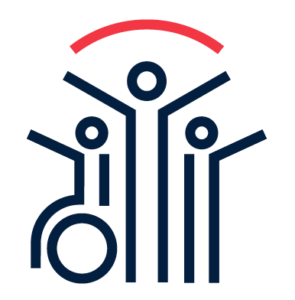 Community work
Community work
Guidance for National Societies on safe and remote risk communication and community engagement during COVID-19
This guidance note provides clear recommendations to National Societies on how volunteers can carry out face-to-face social mobilization safely, how to advocate for continued access to communities with Governments in the face of movement restrictions and options for remote risk communication and community engagement (RCCE) when face to face access is no longer an option. Read more: EN AR FR RU SP
COVID-19 community guidance for social mobilizers, frontline workers and volunteers
This guide gives advice on how community volunteers can engage with communities and build trust, including what information to share, questions to ask, key messages on COVID-19, and frequently asked questions and answers. IFRC lead with WHO, UNICEF. Read more: EN SP FR VI Korean MY BN ID JA TL MS TH HI ZH_CN ZH_TW
Key Messages and Actions for COVID-19 Prevention and Control in Schools
COVID-19: How to include marginalized and vulnerable people in risk communication and community engagement
A guide with practical actions to take to ensure different vulnerable and marginalized groups are included in RCCE approaches and activities, including women, children, people with disabilities, people with underlying health conditions, refugees and migrants, etc. Read more: EN
Interim IASC Guidance on COVID-19 Preparedness and Response for People on the Move in Humanitarian Camps and Camp-like Settings
Guidance note with advice on how to ensure effective COVID-19 preparedness and response in camps, covering RCCE, surveillance, infection prevention control, site management, health care provision, and case management. Read more: EN
Including migrants and displaced people in preparedness and response activities for COVID-19
Guidance for MENA National Societies on how they can support migrants and displaced people, covering risk factors, information sharing, addressing stigma, managing stress, community engagement and accountability. Guidance can be adapted for other regions. Read more: SP EN ASIA PACIFIC MENA
Pandemic Fatigue First Aid Kit
Pandemic fatigue is real and spreading. This Community Engagement First Aid Kit provides tips on how to revitalize their community engagement approaches to overcome pandemic fatigue. Read More: EN
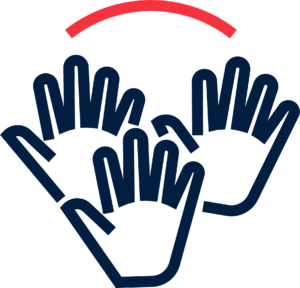 Collecting community feedback
Collecting community feedback
COVID-19 Community Feedback Collection Pack
The latest IFRC tools and guidance for COVID-19 community feedback data collection consolidated in one place on the web. It contains the individual items mentioned below as well as additional resources, and will be regularly updated. The guidance document in the root of the folder contains descriptions and links to all included materials as well as resources posted elsewhere on the web. Read more: here
A guide to run focus group discussions with community volunteers on COVID-19
COVID-19 Rapid assessment tool
This tool provides a list of questions to include in assessment surveys, key informant interviews or knowledge, attitudes and practices (KAP) surveys. Read more: EN AR Short version (adapted for South Africa Red Cross)
Asia Pacific COVID-19 Rapid Assessment Survey
Community feedback collection form
A simple form that can be used by staff and volunteers to record the rumors/observations/beliefs, questions, suggestions/requests, and acknowledgments/praise shared by community members during social mobilization activities. The form can also be used to record information about social mobilization activities. Read more: EN
Community feedback log sheet
A simple excel spreadsheet that can be used to log and analyse community feedback collected through different channels, including rumours, observations, questions, suggestions and praise. The IFRC version has an additional column for recording information reported to IFRC by National Societies. Read more: EN NS / EN IFRC
Community feedback collection form and log sheet
A simple form for volunteers to record feedback and a excel spreadsheet that can be used to log and analyse community feedback collected through different channels, including rumours, observations, questions, suggestions and praise. Read more: EN SP
IFRC Feedback Starter Kit
Guide and templates to help National Societies set up a feedback and complaints mechanism, including a spreadsheet for logging data and report templates. Read more: IFRC Feedback Starter kit
IFRC COVID-19 Feedback Kit
A resource for launching community feedback mechanisms in the COVID-19 context. Includes templates in French and English for feedback collection (paper and Kobo versions), feedback logging, and reporting. Read more: COVID-19 Feedback Kit
COVID-19 Community Feedback Package
The resource package gives you all the tools and guidance needed to set up mechanisms for systematically listening and responding to communities during our response to COVID-19. Read More: EN
Contact Tracing for COVID-19
Given the complexity of COVID-19, its global scope, national priorities and National Society capacities, contact tracing may be one option to include in the response plan. This document provides guidance on deciding whether assisting with contact tracing is appropriate, as well as considerations to include within contact tracing initiatives. Read more: EN
 Social Media
Social Media
Tips on using social media for COVID-19
Guide to help National Societies use their social media platforms to communicate about COVID-19, including how to share information, how to monitor and respond to rumours and misinformation and how to run online surveys. The document also lists all IFRC social media content and graphics with links to where you can download and edit these into local languages. Read more: EN FR ES
How to Use Social Media to Better Engage People Affected by Crises
A general guide from ICRC, IFRC and OCHA with practical tips and advice on how to use social media effectively to engage with, and be accountable to, affected people. Read more: EN ES(website)
 Mainstream media
Mainstream media
IFRC COVID-19 communications key messages
Overview of the situation and response, key messages and questions and answers for responding to media inquiries. This is regularly updated so sign up to receive the Newswire service from the IFRC communication team by emailing Benoit.Carpentier@ifrc.org
A guide for the media on communicating in public health emergencies
A guide from BBC Media Action with advice for the media on how they can help audiences during public health outbreaks, outlining the important role of the media in reaching large numbers of people with health information and correcting rumours and misinformation. Read more: EN FR AR BH Ukrainian Swahili
 Mobile cinema
Mobile cinema
COVID-19 Mobile cinema guide and running order
Guide on how to use mobile cinema to provide communities with timely, accurate information about COVID-19, collect feedback from communities and counter misinformation and rumours. NOTE: this should only be used in areas with no active outbreak of COVID-19 Read more: COMING SOON
 Training and presentation materials
Training and presentation materials
RCCE COVID-19 staff and leadership PPT
PowerPoint presentation on the role of RCCE in epidemics, covering effective RCCE approaches, lessons learned, and a case study from the West Africa Ebola outbreak. Read more: EN(FedNet)
RCCE 1-day training
One-day Rapid Training produced by IFRC aims to support NSs, branch staff and volunteers to achieve basic knowledge on what is RCCE, how to effectively set up community engagement activities during COVID19 and how to collect and respond to feedback and rumours using new social distancing approaches. Read more: EN FR AR ES
Comprehensive Rapid training for community preparedness and response to the COVID-19
Guide and materials to deliver a rapid training on COVID-19 covering information about COVID-19, transmission, signs and symptoms, prevention and vulnerability. Also, RCCE approaches, epidemic control for volunteers, homecare, infection prevention and control, case management and referral, contact tracing and psycho-social support. Read more: EN
Webinars COVID-19 Trainer of Trainers
Webinar sessions on Risk Communication / Community Engagement and Accountability for trainers of trainers. Find the presentations and webinar recordings. Read more: Webinars folder
Community-Led Solutions Package
A collection of resources, including webinar recordings, PPT presentations and guidance notes, on using community-led solutions in the fight against COVID-19. Read more: EN
Rapid Training: Ensuring Inclusive and Community-Centered COVID-19 Vaccine Rollout
Other Resources from partners
RCCE Collective Service
-
10 steps to community readiness for the COVID-19 vaccine: A document outlining the 10 steps countries should take to prepare communities for a COVID-19 vaccine, treatment or new test.
Social Science Research
- Find resources related to social science research and the pandemic on the COVID-19 page of the SSHAP website.
Community Engagement
-
Interagency Standing Committee: Find COVID-19 Resources Relating to Accountability and Inclusion here
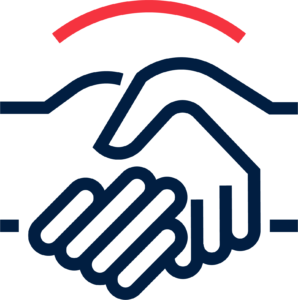 Contact information
Contact information
CEA.Geneva@ifrc.org

